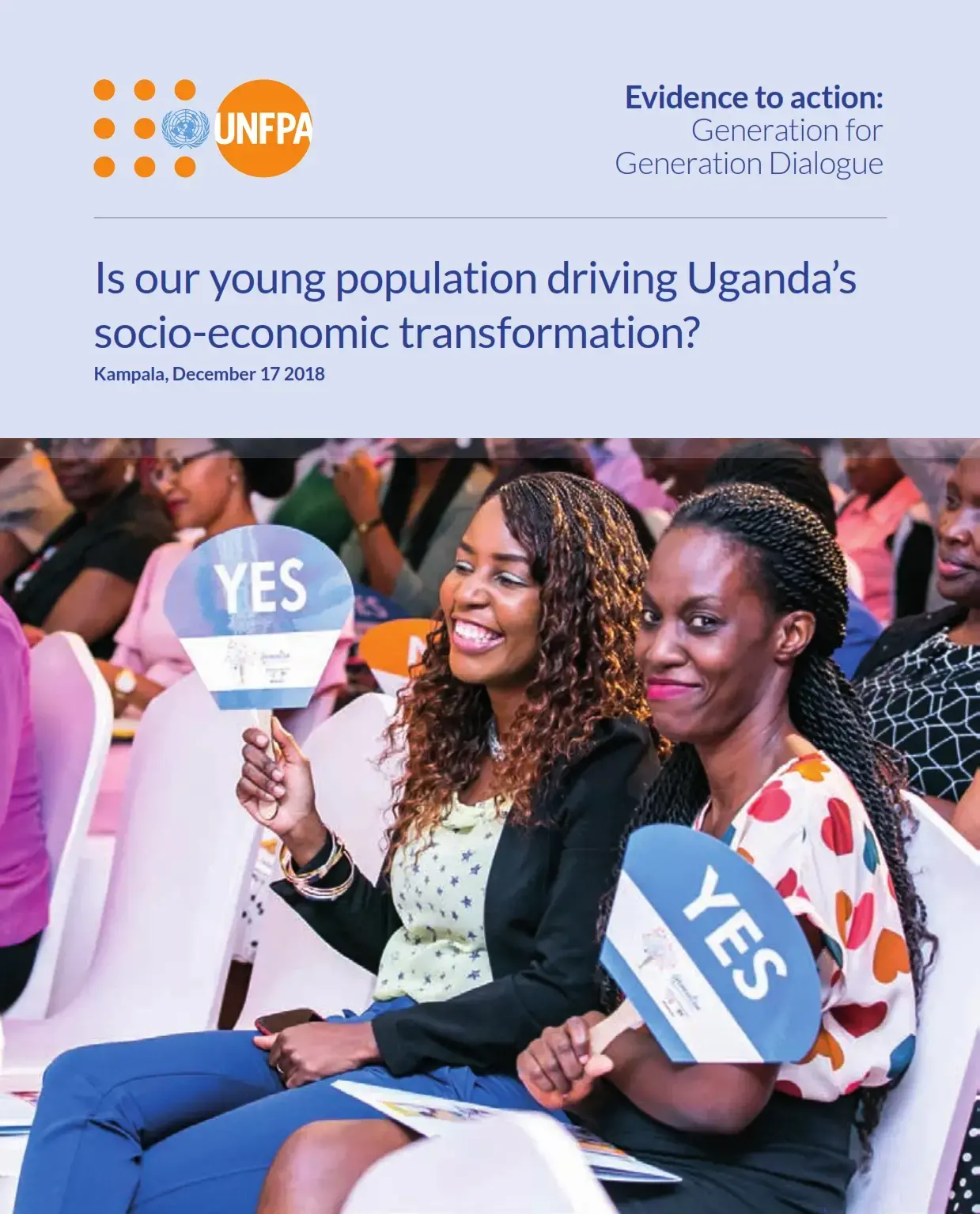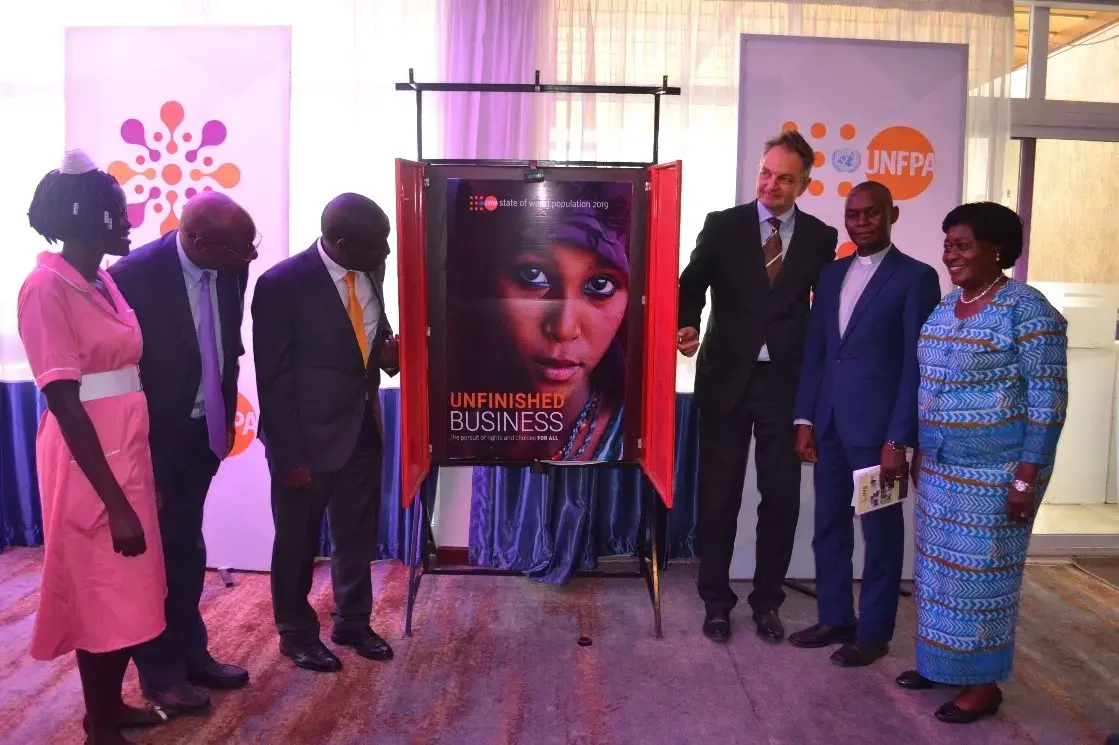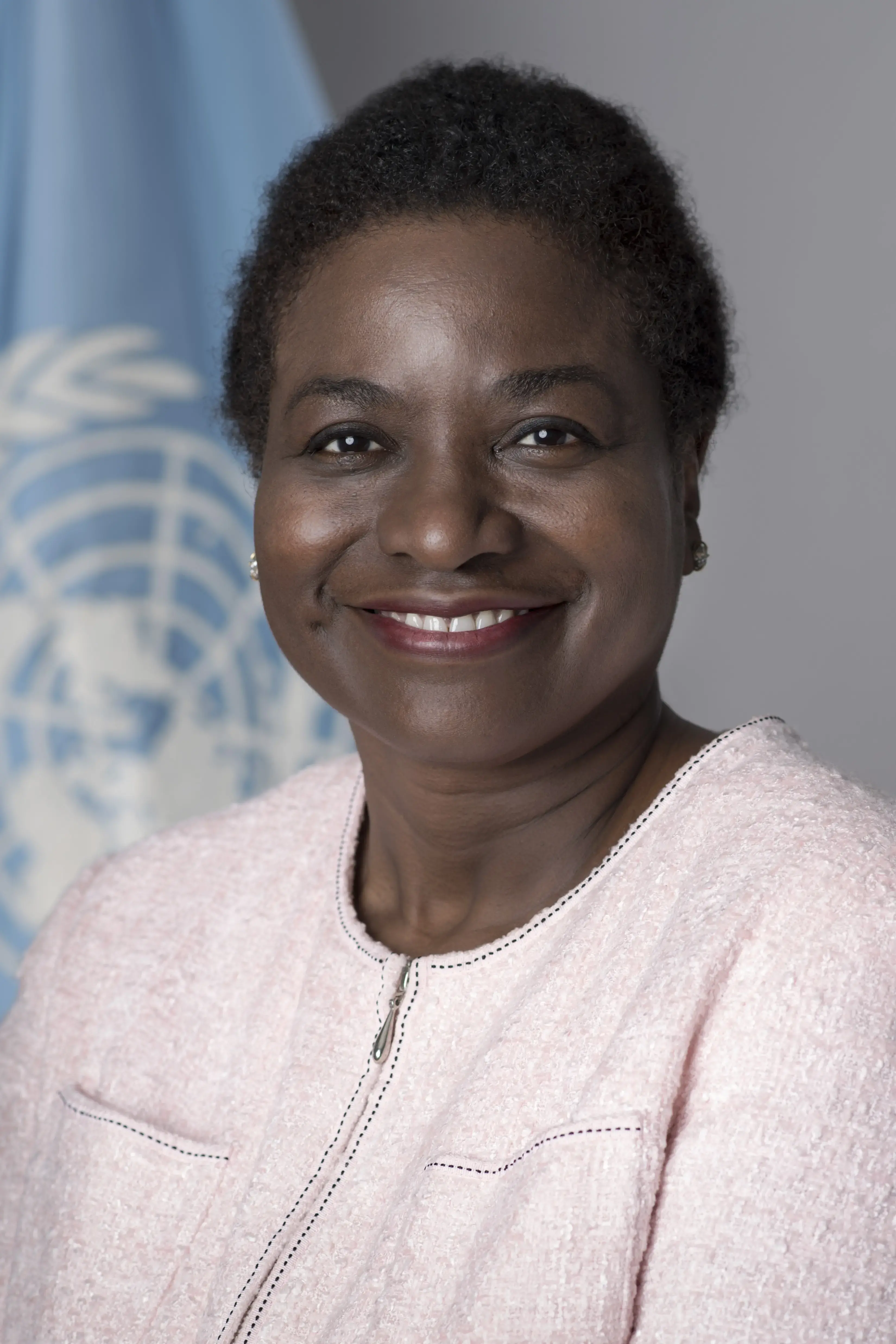Palabek Settlement, LAMWO: In emergencies, every one in five women of reproductive age is likely to be pregnant. In times like these, every mother deserves a safe birth. However, circumstances like unexpected birth complications may cause one to require timely emergency skilled care to save the life of her baby and herself.
As part of its humanitarian action, in collaborative efforts with the Government of Uganda,UNFPA is responding to this situation through a 24-hour ambulance referral service to reduce maternal and neonatal mortality among women living in refugee-hosting communities.
One of the unsung heroes in this cycle are the ambulance drivers, who work day and night to ensure all expectant mothers who need special care are driven safely to the closest health center to ensure no pregnant woman dies giving life.
Twenty-three-year-old Douglas Kajiri has for the past two years, worked as an ambulance driver with UNFPA Implementing Partners International Rescue Committee (IRC) in Bidi -Bidi settlement; with CARE in Kyangwali refugee settlement and with ACORD in Rwamwanja settlement. Today, Kajiri works in Palabek refugee settlement in the northern district of Lamwo, where expectant mothers rely on his driving skills to safely transport them to the nearest Regional Referral Hospital of Gulu town.
“It was a late night for me. I had referrals all night,” he says as he approaches to meet the UNFPA team at Palabek Kal, Health Centre III.
“You know, most deliveries seem to happen at night,” he adds. Calm and composed, Kajiri shares the story of his childhood dream to become a motor vehicle engineer; dreams that were almost shattered when lack of school fees forced him out of school in senior five. Therefore, he decided to find a job.
“I paid a fee to a garage owner and started repairing vehicles as a trainee on-the- job,” he says. Two years later, Kajiri applied for a job in a motor vehicle repair garage in the eastern town of Mbale where he started with driving commercial vehicles.
“I got my first driving permit at the age of 18 years and started driving long-distance journeys across to the DR Congo and Rwanda where I transported tomatoes,” he says.
Soon, Kajiri found himself a humanitarian driver and has since then; has never turned back. Today Kajiri is driving to his dream: “I drive ambulances with a passion. I will drive any time day or night because I want to save lives of mothers,” he says.
Kajiri has also taken it upon himself to learn the First Aid basics for childbirth emergencies, which have proved vital in the absence of a midwife on board. His experience as a young ambulance driver enhanced his confidence, knowledge and basic skills to perform effectively in emergencies.
“I have helped seven women deliver along the way when there is no midwife. Yes, there are some complicated procedures that I cannot do, but I can remove the placenta, inject oxytocin to stop the bleeding, tie the code and massage the womb. I can also help the baby breath as there is oxygen in the car.”
Under UNFPA support, six ambulances are spread out in Kyangwali, Rwamwanja, Kyaka II and Kiryadongo settlements in western Uganda, Arua, Yumbe, Moyo and Adjumani in the West Nile region and Lamwo in northern Uganda.
In 2017, a total of ver 2,070 pregnant women were referred for emergency obstetric care using this strengthened UNFPA ambulance system.
Midwife Sandra Ayugi is appreciative of the ambulance services: “We have about 25-40 deliveries a month. Of these, five are referrals and the ambulance has been very helpful,” she said.
-Written by Evelyn Matsamura Kiapi




